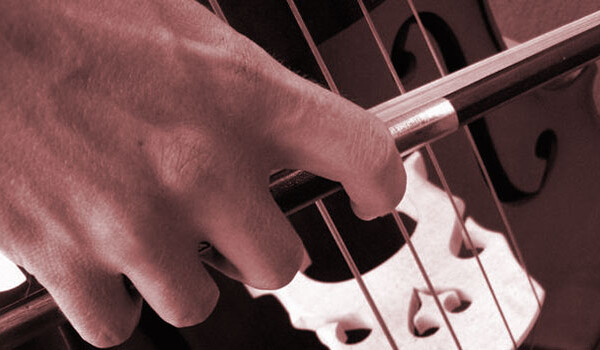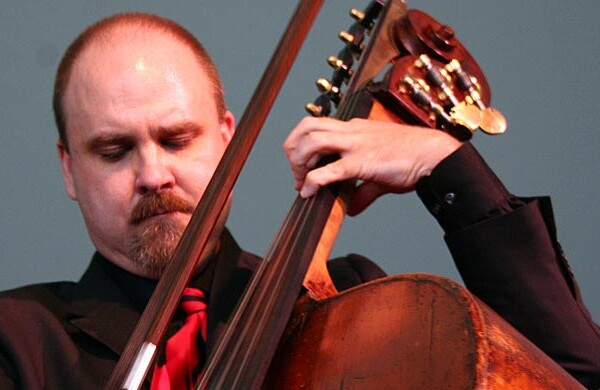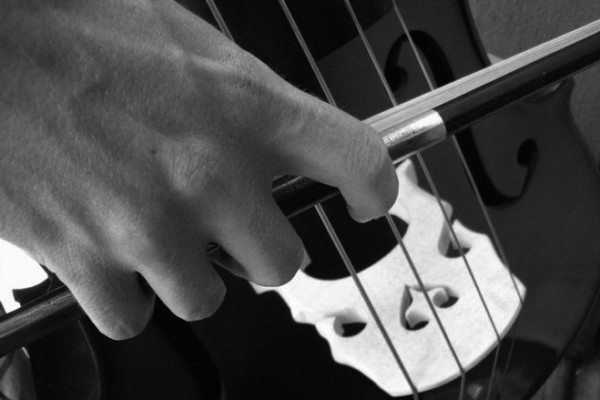Should I Play French or German Bow?
Q: I’m just starting out and I can’t figure out if I should play French or German bow? – Marisol G.
A: One of the seemingly most controversial, yet entirely manufactured non-controversies among double bass players is whether one should play using an overhand (aka “French”) bow or an underhand (aka “German”) bow.
Note: “German” and “French” are used here in a broad sense as there are multiple underhand Bow Holds, and Multiple overhand bow holds. For example there are Viennese holds (underhand) and Italian holds (overhand). For our purposes here, however, we will use “French” as Overhand and “German” as Underhand, in common parlance).
To be sure, there are indeed differences between the French (overhand) and German (underhand) bows. There are differences not only in how we hold the bows, but also in their construction. However, neither bow is limited in the hands of a skilled performer.
While there are still a few people who hold up their particular bow (or bow hold) and say “This is the one true path to greatness! Follow me!,” most bassists understand that high-level technique, precision, and artistry are not exclusive to one bow style.
Nonetheless people often ask “Which one is best?,” especially beginning students. While each performer, teacher and pedagogue has their own educated opinion, the real question should be “Which one is best for me?”
When deciding which bow to pursue in your studies, here are a few things I suggest you keep in mind.
What is available to you?
Many beginning students, especially those of lower income, have only access to what is available at their state or public school, or whatever they can find at bargain basement price. I was this way. There was one bow I had access to, a German bow. So that is what I played.
Of course now I play primarily Overhand bow. (Given the special dimensions, I hesitate to call it “French”. More on my bow anomalies in a future column).
If you have the luxury of choice, however, consider this:
What is your arm length?
In general, I suggest players with average length or short arms to consider French bow, while those with longer arms can consider either French or German. While having short arms does not preclude a person from using a German bow, it seems a to make life easier if you have longer arms.
What does your teacher suggest?
If you are fortunate enough to have a teacher, ask their opinion. Their considered opinion on your body style and your style of play will help you on your journey. In general, except in extreme cases, I rarely suggest a student change from German to French or vice-versa, unless they express some musical dissatisfaction or physical problem. Even then I consider it extensively before I suggest such a change, as it means re-learning so much.
Furthermore, each bow has a different set of pros and cons, so switching from one style to the other seldom solves all problems. It simply trades one set of problems for another. Either way, there are issues to be addressed.
Where do you wish to play professionally (orchestrally speaking)?
In the past, certain orchestras exclusively employed performers on one bow style (German or French). There was no mixing! While this trend has largely died out, there are still places in the world where it would be difficult to get a job playing a particular bow style. So, It’s good to look, and ask, around at common practice in your area, orchestrally speaking. It may help determine your path.
Will you teach in the future?
If so, I encourage you to be proficient on both German and French Bow holds. I don’t find it necessary to perform publicly on both, although some bassists do, but we must be capable with both bow styles to teach the variety of students who come through our studio doors.
Other thoughts
In general getting a full sound can be easier for beginners on the German bow, whereas beginners may find it easier to be subtle and light with the French bow. Skilled players, however, can play with a full sound using the French hold and with great subtlety using a German hold. Certainly each bow hold has pros and cons, but it is completely possible to play either bow style with great artistry. A simply look around at your colleagues will confirm this.
In the end you will want to spend time studying both French and German bow, and then choose the one that is more suited to your body style and artistic vision.
Have fun exploring!
Dr. Donovan Stokes is on the faculty of Shenandoah University-Conservatory. Visit him online at www.donovanstokes.com and check out the Bass Coalition at www.basscoalition.com.




I’d say depends on what feels comfortable. I started on French bow and found after I progressed to a higher level, I’d get shoulder and forearm cramps. My bass teacher recommended the change to German. So after 4 years on French bow I had to relearn how to bow again, but now no complains and haven’t looked back.
I have played german bow for a long time now, and I based my decision on the simple fact that when my arm hangs loosely by my side, the hand hangs palm inward. Also, when you swing a hammer, the hand aligns with the force in the same direction as the swing, which gives you more power. Having said all that, I would encourage a beginning student to try both and ideally have a teacher who can play both. There are advantages to both, and as the article mentions, some orchestras are indeed prejudiced one way or the other.
One consideration to take into account is whether you sit or stand to play. I think it’s easier in some ways to play german bow standing, and there are many great “standing” german players (Gary Karr being the most famous).
Among the great bassists in the world, I can name personal favorites who play french exclusively (Francois Rabbath, et.al.), or german exclusively (besides Gary Karr, Ediscon Ruiz, Slawomir Grenda, to name two), and in rarer cases, a few who play both (Corneel LeCompte, Paul Ellison).